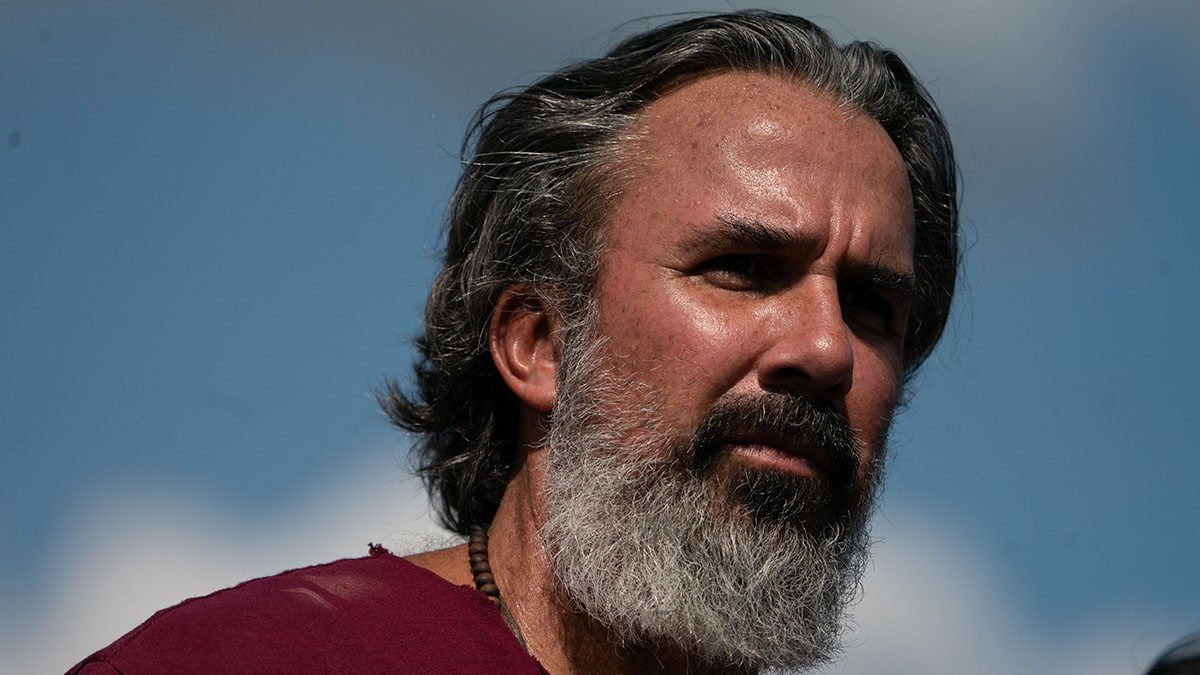The defense in the Parkland school shooting trial has spent two weeks telling the story of how the killer became who he is -- and who might be to blame for that.
But the judge will tell jurors the failures of others — like the school system or mental health counselors — should not be considered when they weigh life or death.
It will be a delicate dance for the defense, which resumes its case Monday, Sept. 12.
Mistakes, miscommunication and missed signals are sprinkled throughout the killer’s life.
Get South Florida local news, weather forecasts and entertainment stories to your inbox. Sign up for NBC South Florida newsletters.
A Junior ROTC teacher testified, for instance, that he was unaware that a school psychiatrist had recommended against the guns-obsessed student being part of the JROTC class at Marjory Stoneman Douglas high.
And a private psychiatrist saw the future mass murderer for three years without, he testified, ever seeing a letter from a schools psychiatrist and a psychologist addressed to him warning the killer, then 15, “seems to be paranoid” and that he “has a preoccupation with guns” and “dreams of killing others” and being covered in blood.
In this context, the law has other names for would’ves and could’ves: irrelevant and impermissible.
Parkland School Tragedy
“They are not permitted to make arguments that system failures are a mitigating circumstance for the justification to impose a life sentence,” Richard Della Fera, an experienced criminal defense attorney who reviewed arguments that led to Judge Elizabeth Scherer’s order on the issue.
She ruled that potential failures prior to, during, or after the crime are not permitted as mitigation, including the handling of any counseling or treatment, or failures by school officials.
But the defense has repeatedly interjected evidence that point to failures, including questioning why the now-23-year-old man was allowed to attend the high school in the first place.
Citing his bad behavior, a defense attorney asked a special education counselor, “Why wasn’t he kicked out of school?”
The counselor responded that as an exceptional education student, he had an individual educational plan that took that into account, and testimony revealed he was entitled to an education in the least restrictive safe environment.
But by then a middle school teacher had already identified the shooter as a danger to others.
“I was starting to get him help and make sure the environment was safe in the classroom,” teacher Carrie Yon recalled. When asked why, she replied, “It didn’t feel safe.”
Yet he was allowed at times to attend MSD instead of Cross Creek, which is for kids with emotional and behavioral issues.
Asked what use all this will be for the jury, Della Fera said, “Ultimately that’s going to be a question for the jury to decide. The law is clear on what it can be used for and what it can’t be used for ... I think if the defense does argue the system failed Nikolas Cruz and that led to the horrific crimes that are committed, I think certainly the judge is going to shut that down.”
“The system could have served this person better, but in a court of law in determining whether the death penalty should be imposed or not, it’s not a relevant factor,” Della Fera said.
Yet, it’s out there in evidence for the jury to consider.
“We have to recognize jurors are human beings and may even unintentionally fail to follow that instruction. But I believe the judge is going to make it very clear what is relevant evidence for them to consider and what is not relevant evidence.”
The defense, for instance, keeps pointing to the failures of the killer’s adoptive mother, eliciting evidence from a child psychologist of the “minimal structure” in the household and how children “need a schedule, you need structure. Otherwise, it’s a free for all and that’s my sense of what was going on over there.”
Before dying in November 2017, Lynda Cruz allowed her eldest to get guns, though a family friend testified the future killer “would go off the reservation when he lost his temper, so no he’s not somebody who should have any weapon.”
And a mental health counselor said the mother let him go off his psychotropic medications because “she felt he didn’t need it.”
His psychiatrist knew that, too, six months before the shootings, when he last saw his patient and his mother. “They indicated when they came back in August he was not on his medication.”
When it comes to the murders themselves, of course, only one person is to blame directly – he’s pled guilty and had recorded his intention to become an infamous school shooter days before the attack, even saying how many he hoped to murder.
But it would take just one juror to say no to death 17 times for him to be spared the death penalty.
And they don’t have to give any reason for that decision, legally relevant or not.


